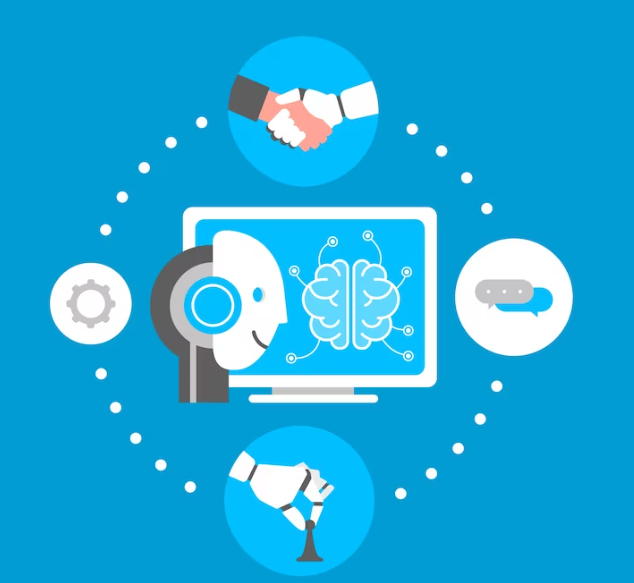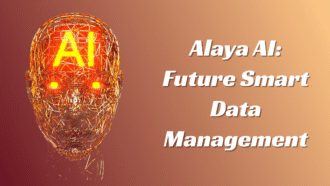Is AI-Generated Content the Future of Marketing, or a Risky Bet?
Welcome to the world of AI-generated content, where machines are rapidly replacing human writers in creating compelling marketing materials. As businesses strive to keep pace with the digital age and outperform their competitors, they’re turning more towards this innovative technology. But is it a wise investment or a risky bet? In today’s post, we’ll explore the pros and cons of AI-generated content and examine whether it truly is the future of marketing or not. So buckle up and get ready for an exciting ride!
Introduction to AI-Generated Content
As companies increasingly look for ways to stand out in a crowded marketplace, many are turning to artificial intelligence (AI) to generate unique and engaging content. AI-generated content can take many forms, from chatbots that simulate human conversation to algorithms that generate articles or social media posts.
There are a number of benefits to using AI-generated content. For one, it can help companies save time and money by automating the content creation process. Additionally, AI-generated content can be highly personalized and targeted to specific demographics, making it more likely to resonate with readers.
However, there are also some risks associated with AI-generated content. Because it is often generated by algorithms, it can sometimes lack the creativity and human touch that readers crave. Additionally, AI-generated content can be easily misinterpreted, which could lead to negative consequences for your brand.
AI-generated content is a promising new marketing tool that comes with both benefits and risks. As you consider whether or not to use AI-generated content in your marketing strategy, be sure to weigh the pros and cons carefully before making a decision. If you have content in image and you want to extract then you can use AI photo to text converter tool.
Benefits of AI for content production
As the world of marketing evolves, so does the role of artificial intelligence (AI). Marketers are always looking for new ways to produce content more efficiently and effectively, and AI can help them do just that. Here are some of the benefits of AI for content production:
1. Increased Efficiency
AI can help marketers increase the efficiency of their content production process by automating tasks that would otherwise be done manually. For example, AI can be used to gather data from various sources, compile it into a cohesive format, and identify key insights or trends. This frees up time for marketers to focus on other aspects of their job, such as strategy or creative ideation.
2. Improved Quality
In addition to increased efficiency, AI can also help improve the quality of content production. By leveraging data and analytics, AI can help marketers create more targeted and personalized content that resonates with their audience. Additionally, AI can be used to identify potential errors or inconsistencies in content before it is published, ensuring that only high-quality material goes live.
3. Greater Creativity
Though often thought of as a replacement for human workers, AI can actually complement and enhance human creativity. For instance, AI can be used to generate ideas for new pieces of content based on data collected about what has performed well in the past. To generate quality content from chat GPT you have to use best chat gpt prompts marketers can then take these ideas and run with them, adding their own personal touch to create something truly unique and impactful.
Challenges associated with AI-Generated Content
There are a number of challenges associated with AI-generated content. Firstly, it can be difficult to ensure that the content is accurate and error-free. Secondly, there is a risk that the content may be perceived as being ‘ impersonal and ‘ robotic ‘. There is a danger that AI-generated content may eventually become ‘self-aware’ and start to generate its own marketing messages, which could be difficult for humans to control.
How to ensure quality control when using AI for content creation
As businesses increasingly look to AI to automate content creation, it’s important to consider quality control. Here are a few tips:
- Set clear objectives and KPIs for your AI-generated content. What are you hoping to achieve with this content? Make sure your AI is aligned with these objectives.
- Review your AI-generated content before it goes live. Is it on brand? Does it meet your quality standards?
- Get feedback from your team on the AI-generated content. How does it compare to other types of content they’ve seen?
- Monitor your AI-generated content after it goes live. Is it performing as expected? Are there any areas for improvement?
Examples of AI-Generated Content
As artificial intelligence continues to evolve, so too does its ability to generate content. From simple things like blog posts and social media updates to more complex creations like videos and website designs, AI is capable of producing a wide range of content.
Some believe that AI-generated content is the future of marketing, as it has the potential to be more personalized and engaging than traditional forms of advertising. However, others are concerned about the risks associated with using AI-generated content, such as the potential for plagiarism or the misuse of sensitive data.
Only time will tell whether AI-generated content will become a staple of marketing campaigns or remain a niche tool. In the meantime, here are some examples of AI-generated content that you may encounter:
- Blog Posts: Blog posts are one of the most common types of AI-generated content. Using natural language processing, AI can analyze data and generate insights that can be turned into compelling blog posts. For example, an AI system might analyze customer data to identify trends and write a blog post about them.
- Social Media Updates: Social media platforms like Facebook and Twitter are increasingly using AI to generate automated updates. For example, Facebook uses AI to create suggested posts based on your interests and interactions with friends. Twitter uses AI to curate personal timelines and suggest new accounts to follow.
- Videos: Videos are another area where AI is being used to create automated content. YouTube has been using machine learning
Conclusion
AI-generated content has the potential to revolutionize the digital marketing landscape – but there are still serious risks associated with its use.
It’s important that companies understand these risks before diving in, and take measures to ensure their AI-generated content aligns with their values and does not cross any ethical boundaries.
If used correctly, however, AI could be a powerful tool for creating personalized experiences at scale – something that will become increasingly more important as consumers demand more tailored communications from brands.

















